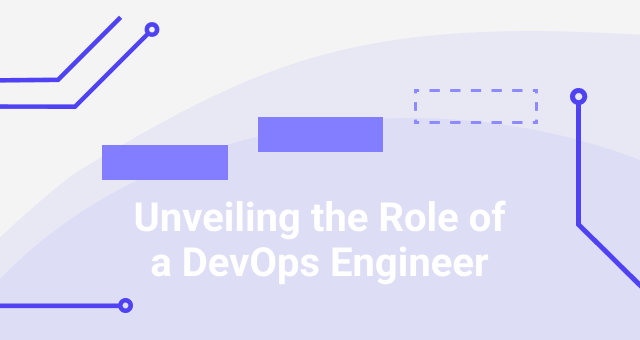In the digital age, where software development and deployment have become the beating heart of every organization, a key orchestrator emerges to harmonize the entire process.
Enter the DevOps engineer, the maestro behind the scenes, ensuring seamless collaboration between development and operations teams. With their unique set of skills, they conduct the symphony of software, achieving faster releases, improved quality, and enhanced customer satisfaction. In this article, we will uncover the essential skills and responsibilities that define this instrumental role.
Section 1: Bridging the Gap
The DevOps engineer stands as a bridge, spanning the chasm between software development and IT operations. By promoting collaboration and communication, they eliminate silos, fostering a culture of shared responsibility and continuous improvement. Their ability to empathize with both developers and operations professionals enables them to synchronize efforts and establish a holistic approach to software delivery.
Section 2: Jack of All Trades
To succeed in their role, a DevOps engineer must acquire a diverse skill set. Mastery of various programming languages, including Python, Ruby, and Java, equips them with the ability to navigate different environments and automate complex tasks. Proficiency in infrastructure management tools like Docker and Kubernetes empowers them to deploy applications efficiently across various platforms. Additionally, their expertise in continuous integration and deployment tools such as Jenkins and GitLab enables the smooth flow of code from development to production.
Section 3: Automation Virtuoso
One of the cornerstones of the DevOps philosophy is automation. A skilled DevOps engineer leverages automation tools to streamline repetitive tasks, reduce errors, and increase productivity. By implementing infrastructure-as-code principles, they can provision and configure environments swiftly, ensuring consistency and scalability. Automated testing and monitoring processes enable them to detect and resolve issues proactively, delivering reliable software with minimal downtime.
Section 4: Security Conductor
As the custodians of software integrity, DevOps engineers play a pivotal role in ensuring the security of applications throughout their lifecycle. They collaborate closely with security professionals, integrating security practices into every stage of the development process. From conducting vulnerability assessments to implementing robust security measures, they safeguard sensitive data and protect against malicious threats, maintaining the trust of both customers and stakeholders.
Section 5: Continuous Learning Ensemble
The world of technology evolves at a rapid pace, and a successful DevOps engineer embraces lifelong learning. They stay updated with the latest industry trends, continuously honing their skills to remain ahead of the curve. With a growth mindset, they actively seek new knowledge, explore emerging tools, and experiment with innovative approaches. Their commitment to ongoing education allows them to adapt to changing requirements and drive innovation within their organizations.
In the symphony of software development, the DevOps engineer plays a multifaceted role, combining technical prowess with a collaborative spirit. By blending skills in automation, programming, infrastructure management, and security, they bring harmony to the development and operations process. Their ability to bridge gaps, streamline workflows, and foster a culture of continuous improvement propels organizations towards faster, more reliable software releases. As technology continues to advance, the role of a DevOps engineer remains indispensable, conducting the orchestra of digital transformation.

